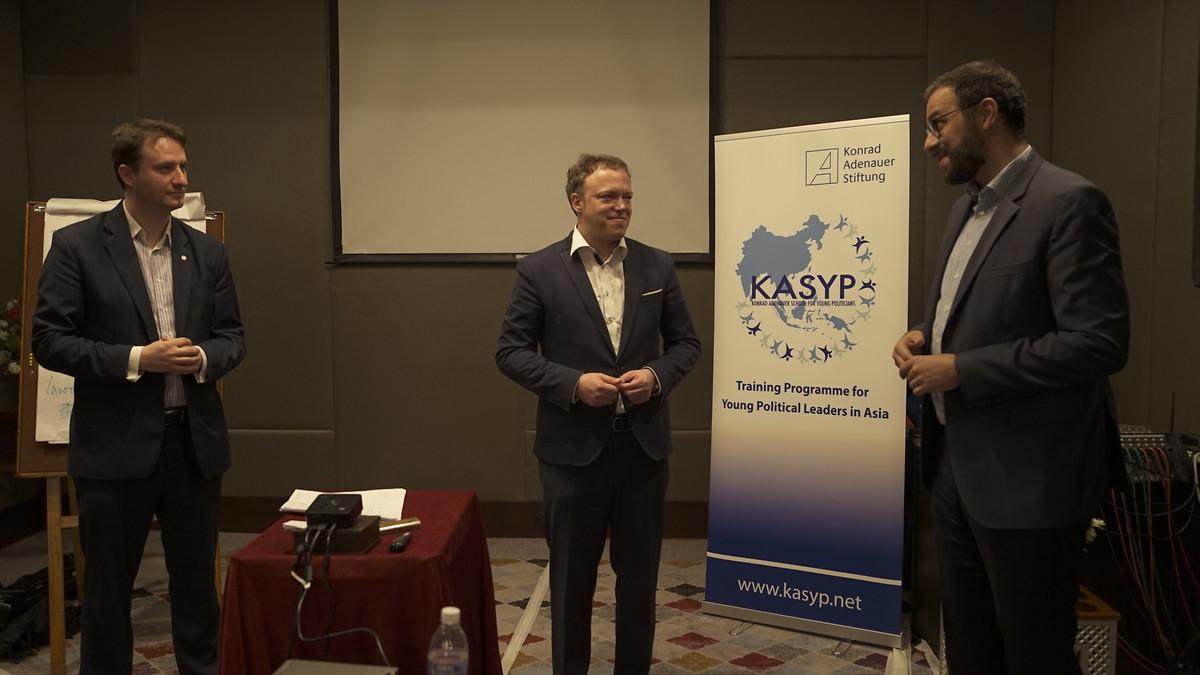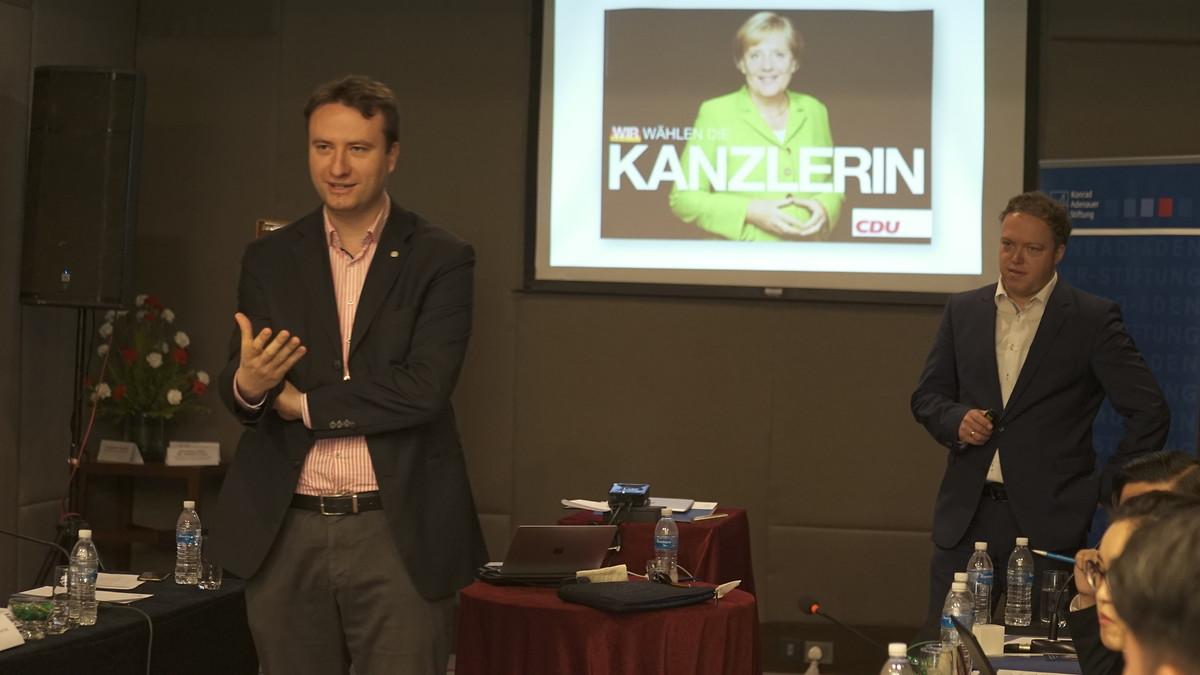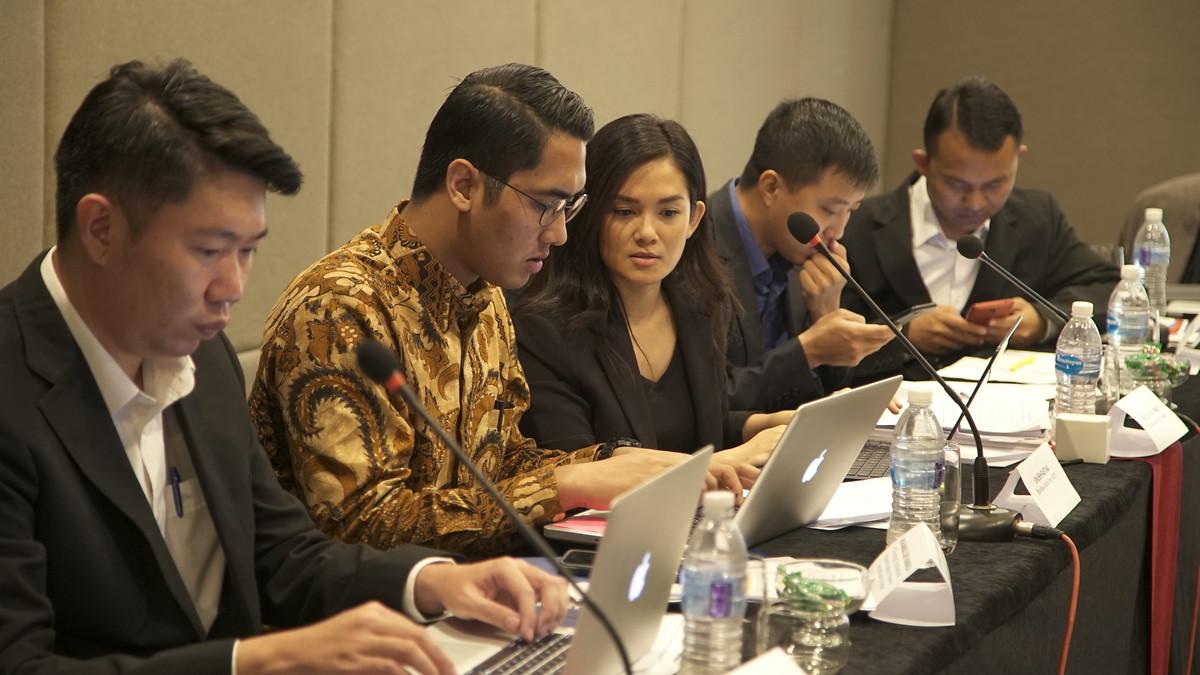Konrad Adenauer School for Young Politicians (KASYP): Third Training Workshop for KASYP Batch 2017-2018 - Regional Programme Political Dialogue Asia
Event Reports
15 participants from six different Asian countries gathered in wonderful Kathmandu, Nepal for a four-day seminar to receive "Leadership Training in Campaigning". This remarkable event marked the first ever KASYP training in Nepal. Invited expert resource persons and political practitioners shared their knowledge and experience with election campaigning, strategy, democratic theory and concepts and by doing so, contributed to the ongoing professionalisation of political parties and the consolidation of democratic political systems in the region.
A highlight were certainly the presentations, workshops, and roleplays under the guidance of our German guests and long-standing KASYP patrons Mark Hauptmann, MP in the German Bundestag and Prof. Dr. Mario Voigt, MP in the State Parliament of Thüringen. With their substantial professional experience and great presentation and training skills, they taught participants political communication and campaigning strategies.
The training programme began with a welcome dinner, hosted by our partner COSATT, who held their 10th anniversary event also in Kathmandu. This was not only a chance to learn from dinner talks by for example the European Union Ambassador to Nepal and SAARC, Veronica Cody, but also an opportune occasion for the KASYPers to meet and network with leading think tankers from South Asia, such as the CSAS and COSATT Director Dr. Nishchal N. Pandey.
The following two days proceeded with the core of the third training programme, namely presentations, roleplays and workshops facilitated by Mark Hauptmann and Prof. Dr. Mario Voigt, who took the group through the fundamentals in political communication as well as campaign strategising and messaging. Engaging theoretical introductions and discussions were followed by live roleplays, which saw the participants acting in various roles developing a number of campaigns and communication situations. Over a luncheon debate, KASYPers also got the opportunity to learn about KAS’ work in India as well as the active KASYP Alumni group there directly from Peter Rimmele, KAS Country Representative to India, who kindly joined us on Wednesday.
Just how much the KASYP training can impact the political career of a participant was brought home by Honourable Biraj Bista, KASYP Alumni and former MP and Minister of Science and Technology in Nepal. Hon. Bista shared his experiences with KASYP, how his KASYP training helped him in his political life as well as updates on the political situation in Nepal after the recent elections. Of particular interest to all of us was his vivid description of how he, as a minister, implemented political strategies and priorities he learnt with KASYP in real life in Nepal. The training programme also included in-depth introductions into democratic theory and practice, such as various electoral systems. Dr. Sandeep Shastri, Pro Vice Chancellor at the Jain University, covered plenty of country specific examples from Asia to Europe and their advantages and limitations. He argued that “electoralising” a country is a necessary, but not sufficient step of democratisation. Mr Ibrahim Suffian of the Merdeka Center for Opinion Research in Malaysia proceeded and covered the background, utilisation and implications of opinion polling and elections. More specifically, he covered the uses of political polling in campaigning within the region, providing case studies and the use of polling to benefit campaign strategies. He also stressed the disadvantages of polling, such as a potentially false confidence polling may give to politicians. But he maintained that trends are useful indicators and can add significant value to campaigns, if they are interpreted correctly. The final day saw all KASYP representatives present an update on their political projects as well as selected country updates and subsequent debates.
KASPDA is looking forward to the fourth and final workshop of batch 8 in Germany and will provide a similarly detailed event report soon after. For more information, please visit kasyp.net or find us on Facebook!







